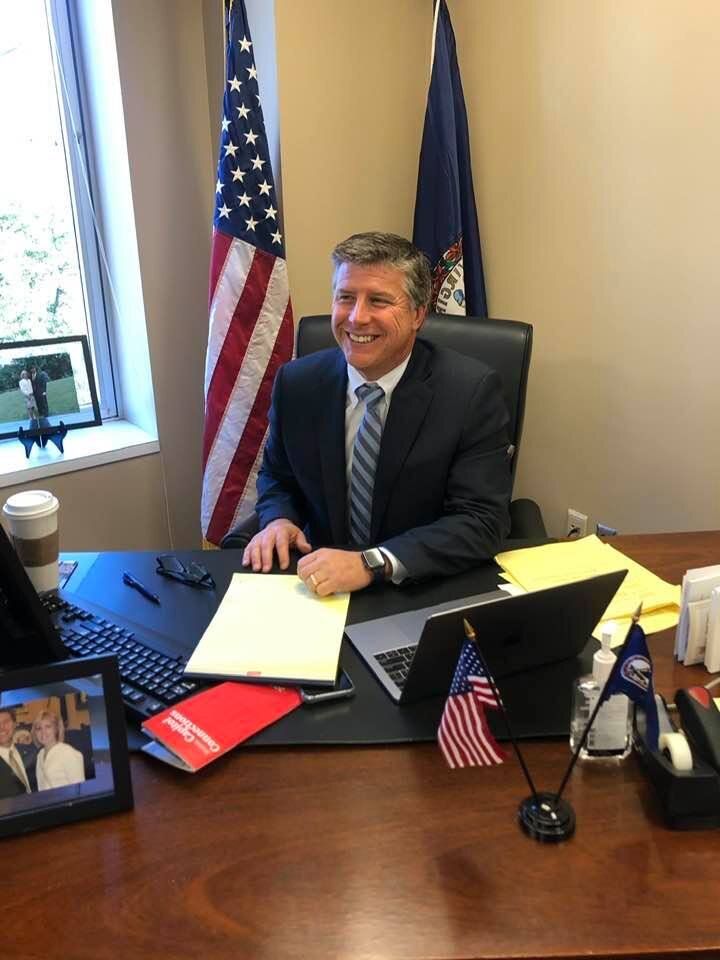With less than two weeks left before we’re scheduled to adjourn on February 23, this week in Richmond was fast-paced. The national attention that gripped Capitol Square over the last two weeks has noticeably diminished, as the throngs of cameras have receded somewhat. There are still more members of the news media here than usual, but our focus has been our work.
The House and Senate approved the $1 billion tax relief plan we proposed two weeks ago. That legislation has now been signed by the Governor. This means the four million Virginians filing their income taxes between now and May 1 will be receiving a rebate check of $110 ($220 for couples) this fall. And when families prepare their personal income tax forms next year, their tax burden will be lower because the plan we approved increased the standard deduction by 50%. This is the first change in 30 years. It was my honor and privilege to help craft this plan.
With all sides now agreeing on how much Virginia’s government has to spend, resolving the differences between the House and Senate on changes to Virginia’s 2018-2020 Biennial Budget should go smoothly.
Most years, issues involving spending and taxes grab a disproportionate amount of coverage from the news media. Obviously, this year has been different. It has been very difficult to garner attention for legislation making its way through the General Assembly process.
One issue we’ve been tackling this session is the rising cost of healthcare and healthcare coverage. Combined, Senate Republicans filed 33 bills to address rising healthcare costs in Virginia this legislative session.
Since the passage of the Affordable Care Act (more commonly referred to as Obamacare), millions of Americans – especially those who had always purchased their own coverage – have found healthcare coverage offered on the exchange unaffordable. Premiums that used to be in the low hundreds of dollars doubled and, in some cases, tripled. Deductibles and out-of-pocket expenses went from $1,000 or $2,000 annually to $5,000 and $6,000.
Virginia is not without options. The federal government has offered states some flexibility to give their citizens greater choice at lower cost. Some of our neighboring states have taken advantage of some of these options, but Virginia has not. We’ve passed legislation to allow organizations and associations to pool together to offer lower cost group plans to their members or employees. A measure to allow more individuals to purchase lower cost catastrophic care plans won widespread, bipartisan approval, too.
The affordability of healthcare is an issue that will not be solved easily. With gridlock over the issue in Washington, the General Assembly has a responsibility to ensure Virginians have access to every available option the federal government permits. We’ve been doing that and making many changes, which, if signed by the Governor, will make a positive difference for Virginians grappling with the rising costs of care and coverage.
Even though the remaining days of this year’s session are down to single-digits, visitors continue to stop by our offices in the Pocahontas Building. We welcomed District 23 members of the Virginia Horse Council, district business leaders, and district members of the Virginia Academy of Nutrition and Dietetics.
The final week of this year’s General Assembly session begins with a federal holiday, Washington’s Birthday. It won’t be a holiday on Capitol Square, though, as senators and delegates will be meeting to continue their work on legislation and complete amendments to the budget.
Next week, I’ll have a final update on the 2019 session, including the end result of budget negotiations. Until then, have a great week.
